Abstract
Ninety-two patients suffering from Huntington's chorea (HC) and their spouses, and 91 subjects with an affected parent and their spouses, living in three counties of industrial South Wales, have been studied regarding their knowledge of their inheritance of the disorder. Particular attention was paid to its influence on their attitudes towards child-bearing, telling their children of the risks, and predictive tests. Only 12% of the patients were known to have received professional advice before completing their families, in contrast to 68% of the sample at risk. It is estimated that 82% of the patients and 60% of the subjects at risk had, or might have, restricted their family size had they known in time. The majority found genetic counselling helpful, but did not necessarily wish to alter their child-bearing plans in consequence. It was clear that information provided by the family alone was usually inadequate and that this applied to the present generation at risk as well as to previous generations. It was concluded that the burden of telling children the risks is too great for most parents and that professional help is needed. The long term impact of genetic counselling on the incidence of the disease is impossible to assess without continued monitoring, but preliminary results are encouraging. Attitudes towards a predictive test reflected much conflict: although 56% overall wished to take one, only 40% of those who were parents wished to know if they were at risk of passing the gene on to their children. Few subjects reported severe social stress on learning of their genetic risks, but about one in four reported experiencing significant anxiety.
Full text
PDF

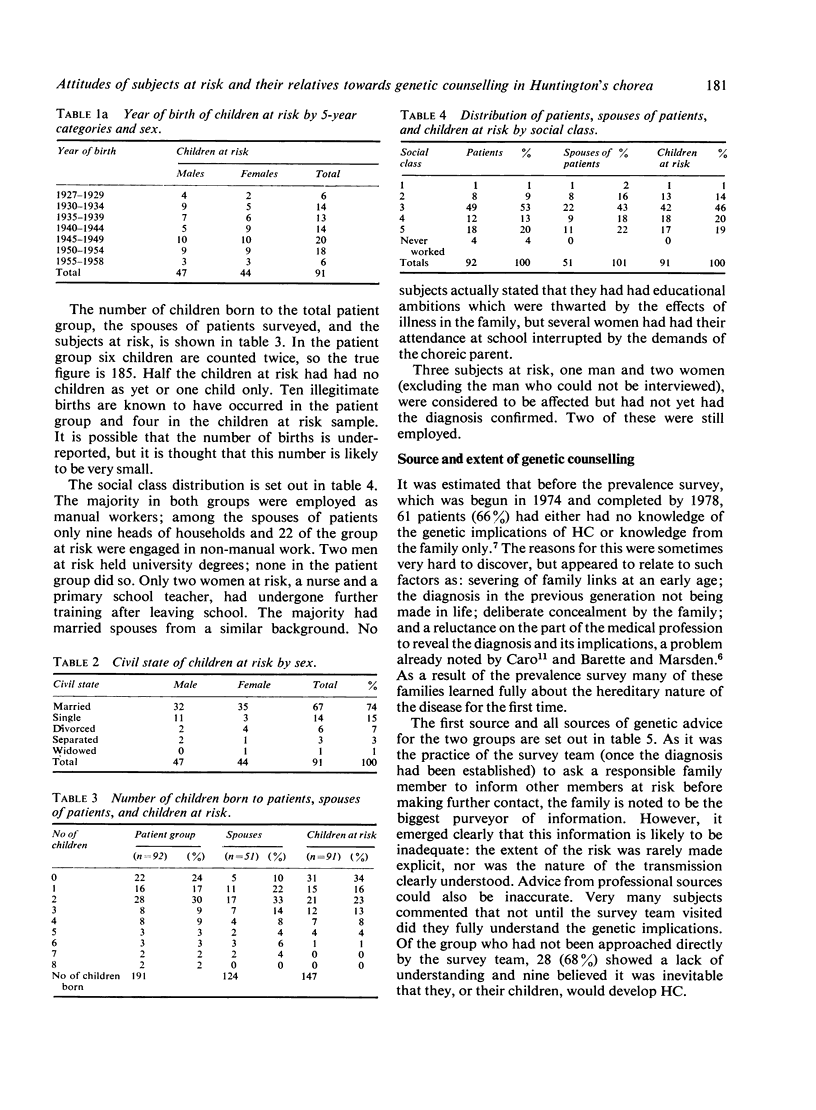
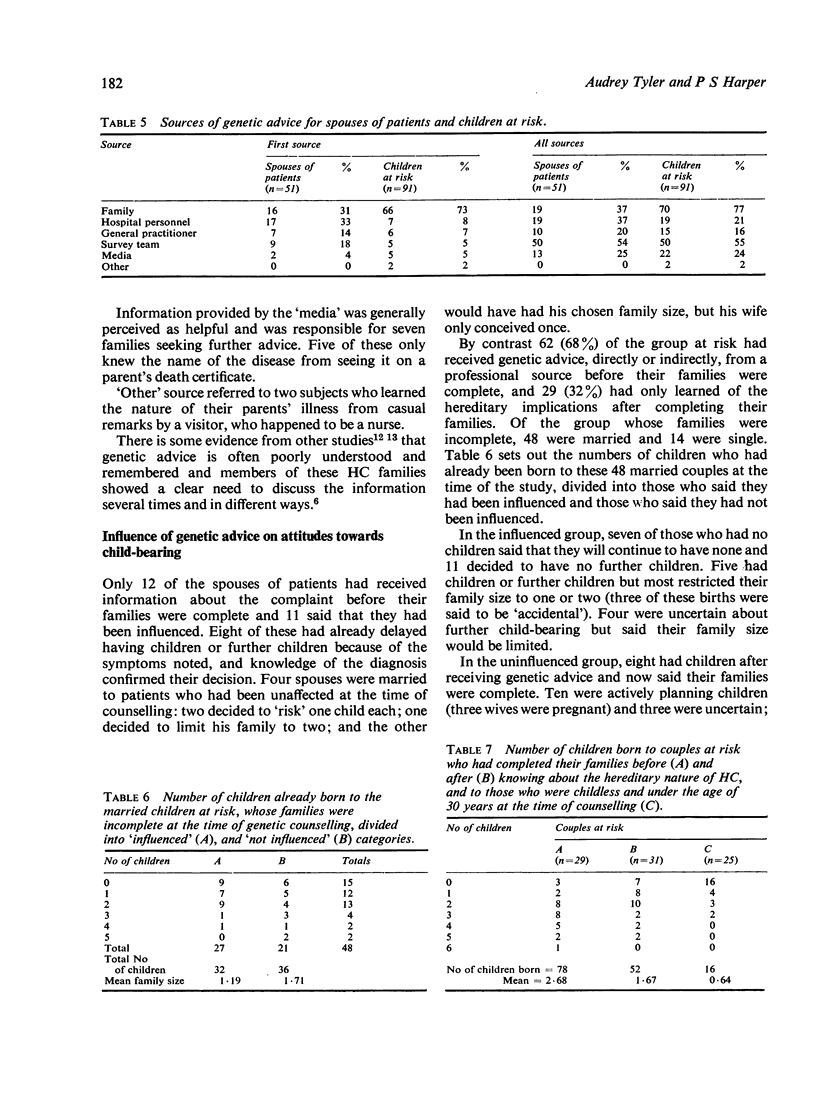
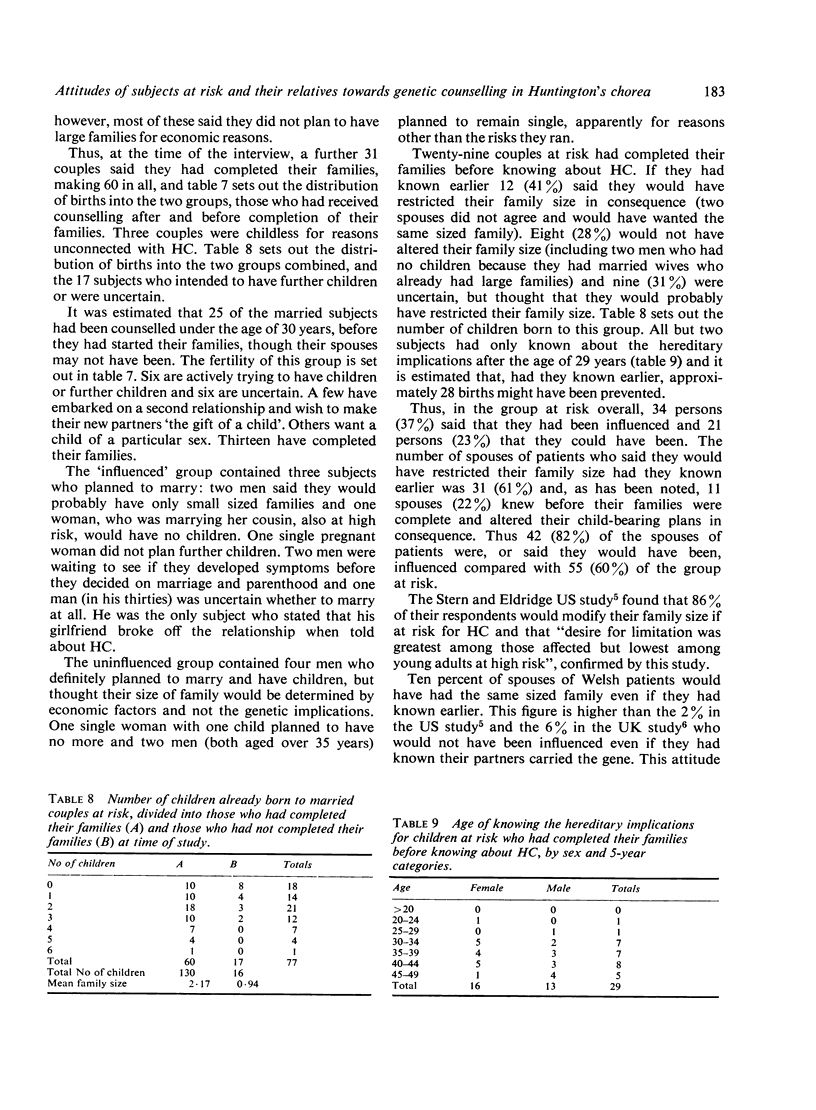
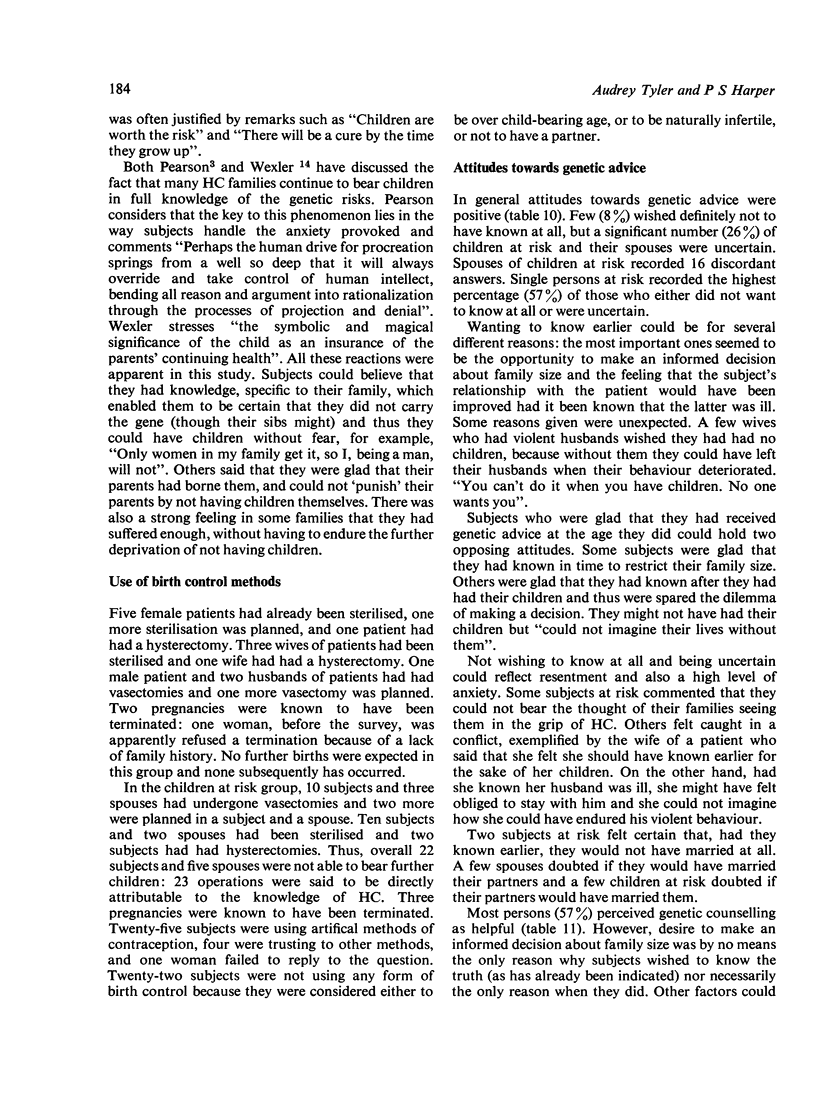
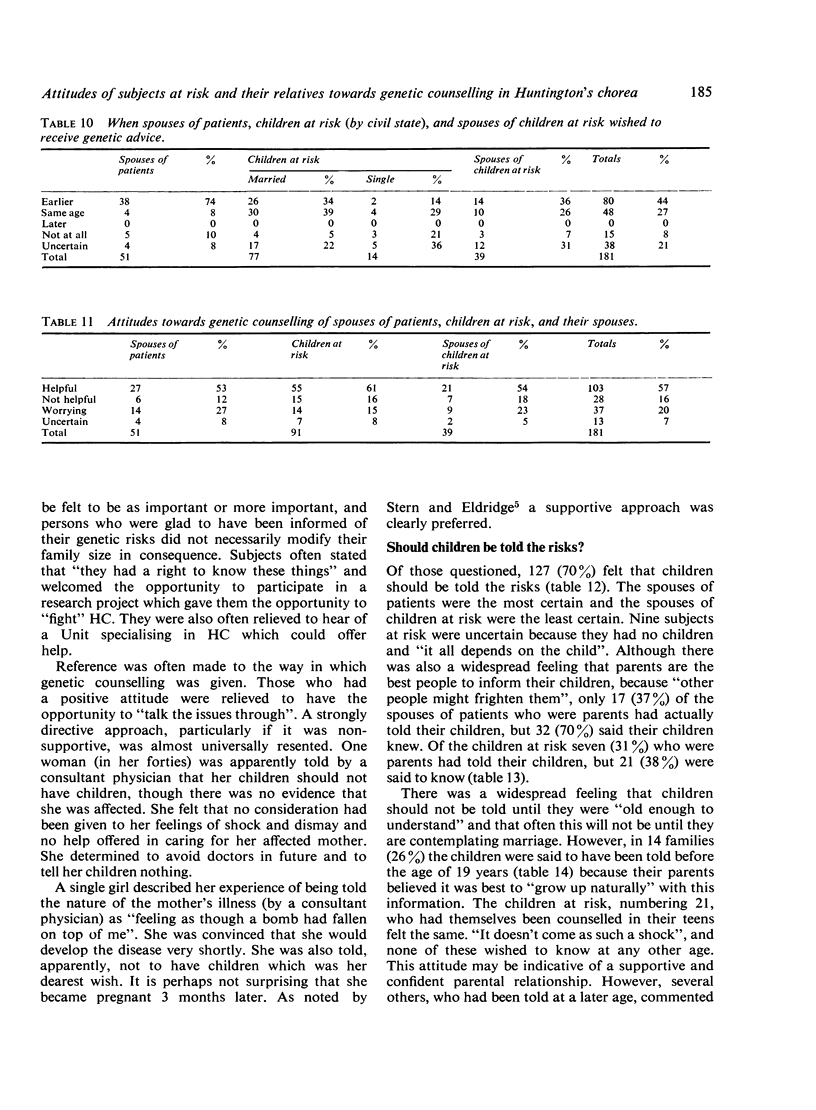
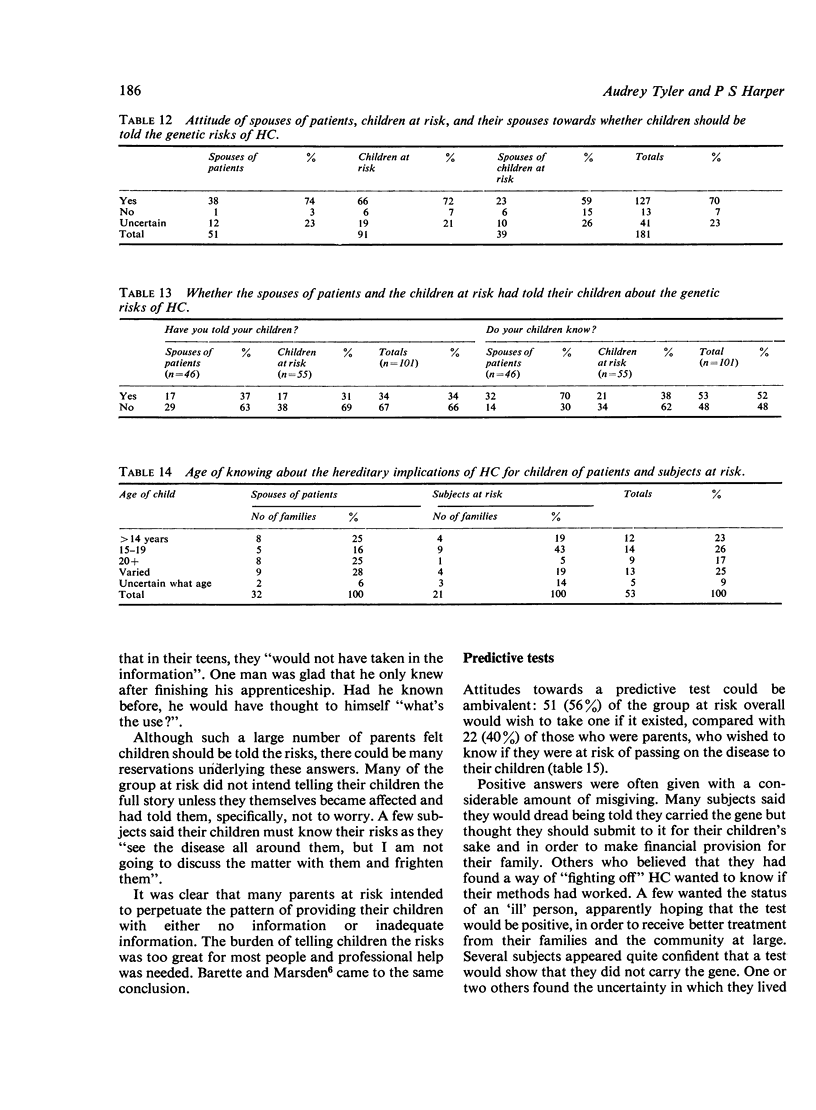
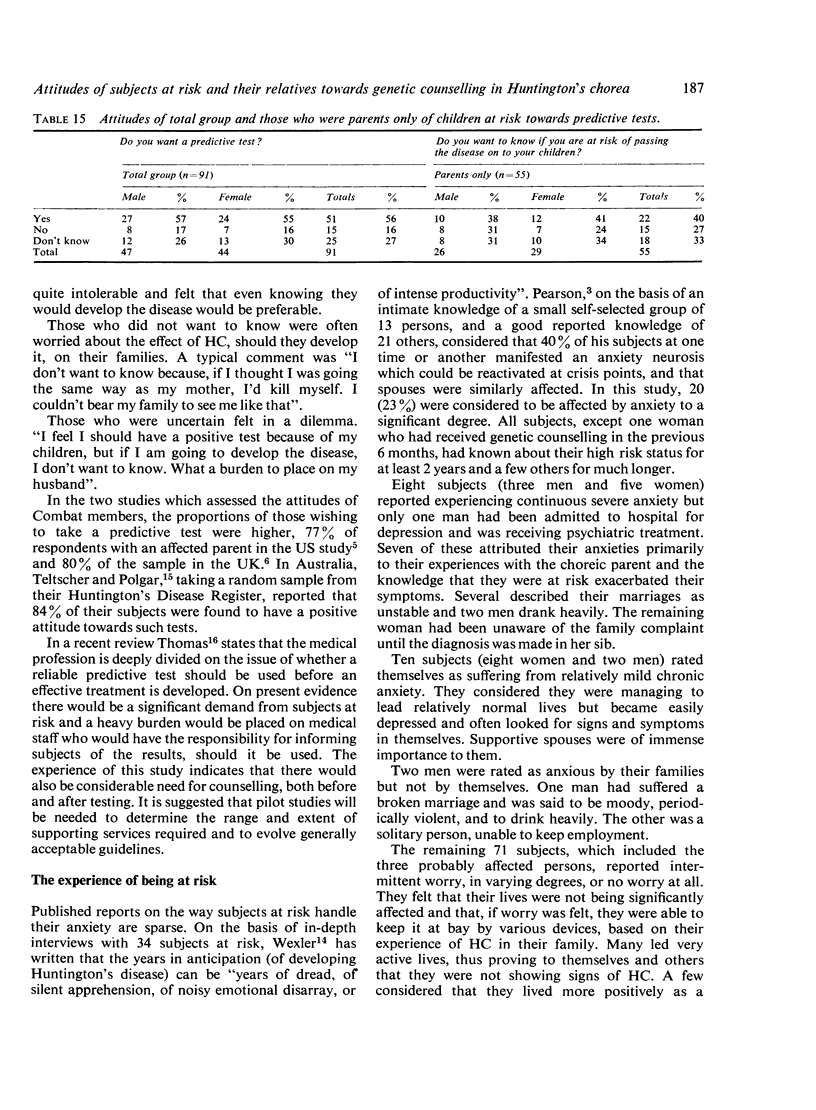
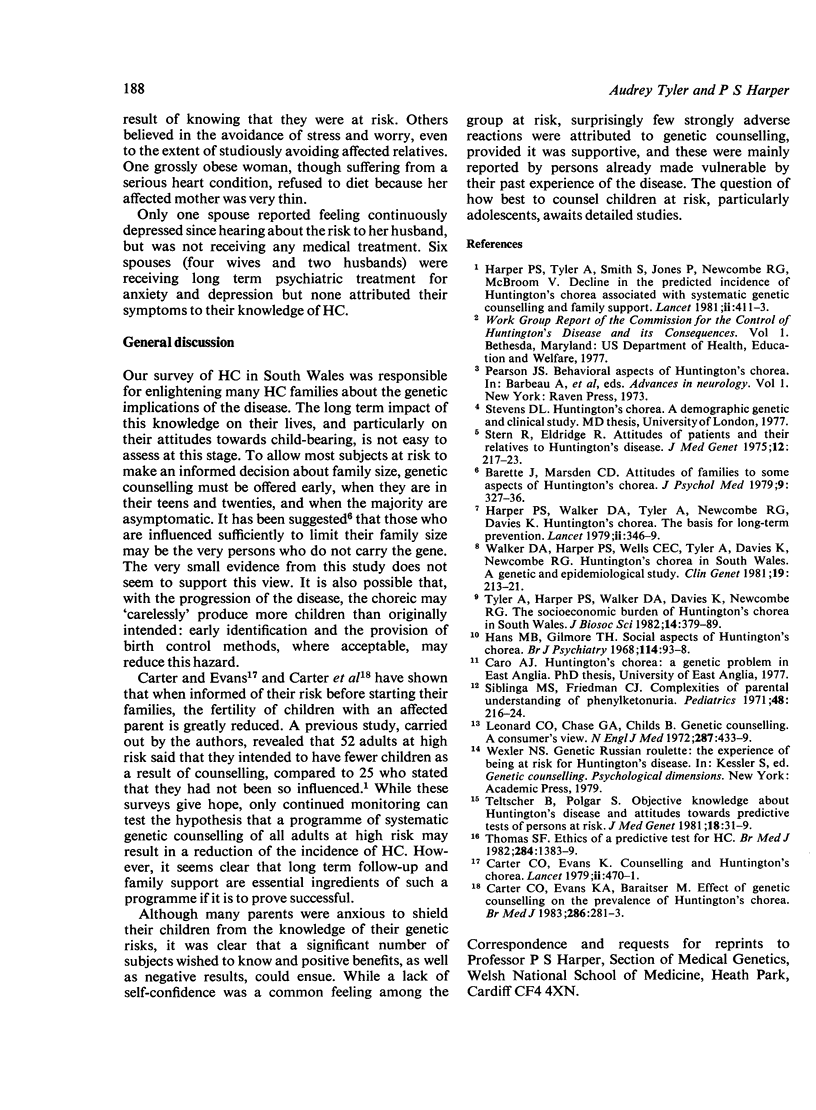
Selected References
These references are in PubMed. This may not be the complete list of references from this article.
- Barette J., Marsden C. D. Attitudes of families to some aspects of Huntington's chorea. Psychol Med. 1979 May;9(2):327–336. doi: 10.1017/s0033291700030841. [DOI] [PubMed] [Google Scholar]
- Carter C. O., Evans K. A., Baraitser M. Effect of genetic counselling on the prevalence of Huntington's chorea. Br Med J (Clin Res Ed) 1983 Jan 22;286(6361):281–283. doi: 10.1136/bmj.286.6361.281. [DOI] [PMC free article] [PubMed] [Google Scholar]
- Carter C. O., Evans K. Counselling and Huntington's chorea. Lancet. 1979 Sep 1;2(8140):470–471. doi: 10.1016/s0140-6736(79)91523-x. [DOI] [PubMed] [Google Scholar]
- Hans M. B., Gilmore T. H. Social aspects of Huntington's Chorea. Br J Psychiatry. 1968 Jan;114(506):93–98. doi: 10.1192/bjp.114.506.93. [DOI] [PubMed] [Google Scholar]
- Harper P. S., Tyler A., Smith S., Jones P., Newcombe R. G., McBroom V. Decline in the predicted incidence of Huntington's chorea associated with systematic genetic counselling and family support. Lancet. 1981 Aug 22;2(8243):411–413. doi: 10.1016/s0140-6736(81)90845-x. [DOI] [PubMed] [Google Scholar]
- Harper P. S., Walker D. A., Tyler A., Newcombe R. G., Davies K. Huntington's chorea. The basis for long-term prevention. Lancet. 1979 Aug 18;2(8138):346–349. doi: 10.1016/s0140-6736(79)90356-8. [DOI] [PubMed] [Google Scholar]
- Leonard C. O., Chase G. A., Childs B. Genetic counseling: a consumers' view. N Engl J Med. 1972 Aug 31;287(9):433–439. doi: 10.1056/NEJM197208312870904. [DOI] [PubMed] [Google Scholar]
- Sibinga M. S., Friedman C. J. Complexities of parental understanding of phenylketonuria. Pediatrics. 1971 Aug;48(2):216–224. [PubMed] [Google Scholar]
- Stern R., Eldridge R. Attitudes of patients and their relatives to Huntington's disease. J Med Genet. 1975 Sep;12(3):217–223. doi: 10.1136/jmg.12.3.217. [DOI] [PMC free article] [PubMed] [Google Scholar]
- Teltscher B., Polgar S. Objective knowledge about Huntington's disease and attitudes towards predictive tests of persons at risk. J Med Genet. 1981 Feb;18(1):31–39. doi: 10.1136/jmg.18.1.31. [DOI] [PMC free article] [PubMed] [Google Scholar]
- Thomas S. Ethics of a predictive test for Huntington's chorea. Br Med J (Clin Res Ed) 1982 May 8;284(6326):1383–1385. doi: 10.1136/bmj.284.6326.1383. [DOI] [PMC free article] [PubMed] [Google Scholar]
- Tyler A., Harper P. S., Walker D. A., Davies K., Newcombe R. G. The socioeconomic burden of Huntington's chorea in South Wales. J Biosoc Sci. 1982 Oct;14(4):379–389. doi: 10.1017/s0021932000014267. [DOI] [PubMed] [Google Scholar]
- Walker D. A., Harper P. S., Wells C. E., Tyler A., Davies K., Newcombe R. G. Huntington's Chorea in South Wales. A genetic and epidemiological study. Clin Genet. 1981 Apr;19(4):213–221. doi: 10.1111/j.1399-0004.1981.tb00701.x. [DOI] [PubMed] [Google Scholar]


